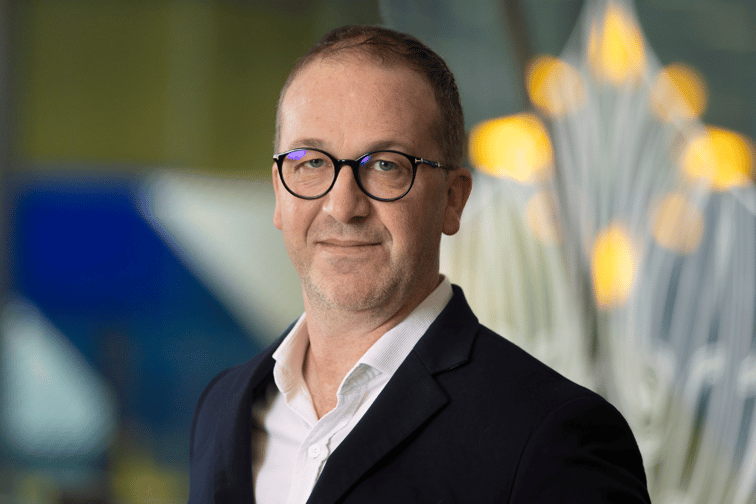

“These opportunities don’t come often; now’s the time.”
Those were the words of Tower chief claims officer Steve Wilson (pictured) when he sat down with Insurance Business to talk about the company’s request for proposal (RFP) aimed at motor repairers in Auckland, Hamilton, Tauranga, Wellington, Christchurch, and Dunedin. The RFP, which runs until 12pm on July 18, is part of Tower’s reassessment of its motor repairer network amid changes in the vehicle claims space.
“As an insurer, we know what our needs are for our customers’ vehicle repairs,” noted Wilson. “From a traditionalist sense, that meant that we would need to get assessors involved, to go out on-site and negotiate with the repairers what the right cost and method of repair is, and then authorise those claims. And that can be quite a bottleneck for the customer, but also for us as an insurer and the repairer. So, what we’re asking for is for the repair industry to tell us, ‘What are your thoughts on how this should work?’
“And we know things are changing in that network as well. There is a change in the vehicle claims that come through – we saw through COVID there was a reduction in claims. But, also, vehicle technology is changing quite rapidly. The vehicle change that we would all recognise is things like PHEVs (plug-in hybrid electric vehicles) also being recognised by the government and rebated. We’ve seen a 60% increase in what we’ve insured for PHEVs as well.”
With more modern vehicles coming on the market, said the chief claims officer, also required are better skills, better training, better tools, and a stronger technical capability.
He highlighted: “Some of that is to do with the electronics of repairing EVs, but for most of it it’s actually just about the repairability of the materials. Because there are different types of steels now, and you do need to know which steels can be heated or which need to be cold-repaired. This changing technology is adding costs to repairers to keep training up… So, by going out to the repair industry, we’re asking them, ‘How do you want it to work? What’s your best way to do this?’”
Wilson went on to stress that Tower will be offering a contract that is guaranteed for the life of the partnership. The idea is for the repair businesses to grow alongside the insurer.
“Even if they change their directorship, they want to sell the business, or they want to bring in another equity partner, we will continue that partnership and not automatically cease that relationship,” elaborated the Tower executive. “And that’s actually a first, from what I hear of the repair industry, to do that.
“That allows them to then take that agreement and rethink the future and the succession of their business, knowing that if they invest, they’ve got a guaranteed commitment from a partner. They can also take it to the bank, arguably, and rethink how they want or where they want to operate. It might be they want to expand their shop or open up multiple shops.”
At present, Tower is partnered with around 80 repairers in the abovementioned regions. For the ongoing RFP, Wilson expects the corresponding review to take weeks. Meanwhile, a request for proposal for the rest of the country is slated by the end of the year.
“We’ve been very happy with our repair network to date,” stated Wilson, “but we’re finding that things have changed, and it is very hard to see the customers go through efficiently with each repairer. There’s competing priorities with those repair businesses, there’s challenges with the supply chain, and there’s changing relationships between repairers and insurers as well.
“So, this is an opportunity to reset with us – our existing partnership, but also partners that haven’t been working with Tower in the past now have an opportunity, [for the] first time in a decade, to really put their best foot forward. It also allows us to look for the best in the industry, and I think that’s the right thing to do for Tower customers.”
He added: “What I’m looking for is a repair network that can allow the customer to come straight through to them, get their cars repaired without any delay, subject to available parts. Us – the repairer and the insurer – can sort out the administration later, where traditionally we’ve done that stuff at the start. We are looking for a repair network which is the highest quartile of quality and service that we can work with, and that’s what will dictate the outcome of how many repairers we have.”
Wilson conceded “it’s going to be quite a process” for the benefit not only of Tower policyholders but also of the insurer’s repairer partners.
“I think this is the opportunity for repairers to really think about a true business plan of where they want to take their business,” he told Insurance Business. “This is a way that over the next few years they can attain a partnership commitment that is transferable; that is something they can take to the bank and invest in their business with that assurance that they are going to have continuity of customers coming to their business. These opportunities don’t come up often.”
